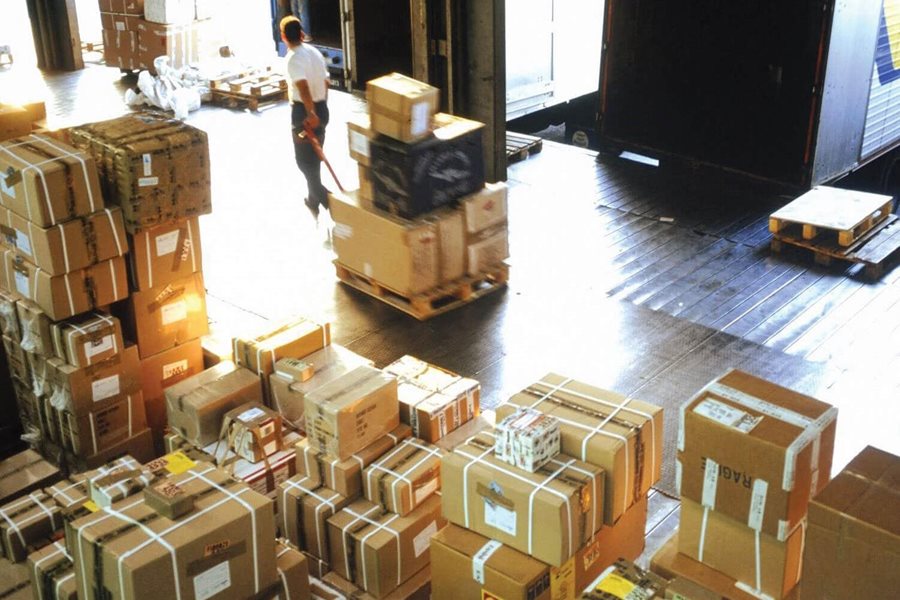🕒 Article read time: 4 minutes
‘Resilient’ supply chain ready to tackle COVID challenge, says FTA

FTA is reassuring UK consumers and businesses that the supply chain is capable of handling challenges posed by the COVID-19 pandemic.
However, as Elizabeth de Jong, FTA’s Policy Director, is keen to point out, the integrity of the supply chain can only be maintained with the support of government and some elements of flexibility to keep goods flowing.
“Logistics is one of the UK’s most flexible and adaptable industries,” she explains, “and is used to reacting to extreme disruption caused by environmental factors, fuel shortages and employment strikes. Our members are working closely with customers to keep things moving and the message is clear – there is plenty of everything the country needs to continue working and living, providing people do not panic buy. Logistics operates a very lean business model, with deliveries made ‘just-in-time’ to keep prices as low as possible, but empty shelves do not mean that stock is not on its way.
“There are particular challenges posed by the potential of illness and self-isolation of workers within the supply chain, but our members are keen to reassure their customers that they will make every effort to ensure any disruption is minimised.
“Logistics is responsible for every item used in this country, from the food we eat to the manufacturing components industry relies upon and, as such, should be recognised as a critical emergency service and its workers given the same recognition as those working for the emergency services or in healthcare. It is vital that they have urgent access to healthcare, washing and toilet facilities and their children are able to attend school, so that the flow of goods can continue unchecked.”
As de Jong continues, logistics also needs government support for contingency plans to address driver shortages caused by sickness, as well as a lack of compliance testing resource to ensure that operators can continue to operate legally and effectively:
“There are still areas of ongoing regulation of our industry which require clarification, to ensure that businesses can continue to function efficiently and keep supplies moving. It is clear that we are facing unprecedented times, and additional financial support may be required for many businesses, particularly those that supply the tourism or hospitality sectors, in the very near future if the logistics sector is to survive.”
The overriding message from the logistics industry, according to de Jong, is to try to maintain normal practices as much as possible: “Logistics can cope with the challenges of the pandemic, providing everyone maintains a balanced and sensible response to the situation. Our members are well prepared to keep goods and materials flowing to all areas of the UK’s economy, providing a pragmatic approach is maintained.”
★www.fta.co.uk/coronavirus
Published On: 01/04/2020 10:38:10

Comments Section
If you are a Logistics UK member login to add comments.
In Brief
CONTINGENCY PLANNING
The Senior Traffic Commissioner has issued a Statutory Document that sets out the approach Traffic Commissioners will adopt in response to the COVID-19 outbreak. This includes temporary steps to assist operators who cannot meet the required financial standing levels and advice on what an operator must consider if a transport manager is unable to attend work.
www.gov.uk/government/publications
DRIVERS’ ACCESS TO FACILITIES
Dr Nicholls from Public Health England has issued an open letter to advise distribution centres that, in light of the COVID-19 virus, there is no reason to deny access to toilet facilities to freight drivers or others who do not have the symptoms of a cough or high temperature. The letter underlines the importance of allowing access to toilet and handwashing facilities currently.
www.gov.uk/phe
Latest articles
Logistics UK responds as Amazon announces additional 5,000 electric vans
Amazon will add nearly 5,000 electric vans to their network. This represents the logistics giant's largest deployment in Europe to date.
Read time: 2 minutes
View article
Time running out to nominate your Rising Star for 2025!
New for 2025! The Rising Star category has been enhanced for 2025 and is designed to highlight the incredible talent, broad variety of roles and incredible employers within the logistics sector. There has never been a better time for you to nominate your peers and colleagues for this prestigious award.
Read time: 2 minutes
View article
Generation Logistics Week - it's not too late to get involved!
Tomorrow, Friday 27 June marks the last day of Generation Logistics Week and members still have time to help get young people involved in logistics.
Read time: 2 minutes
View article